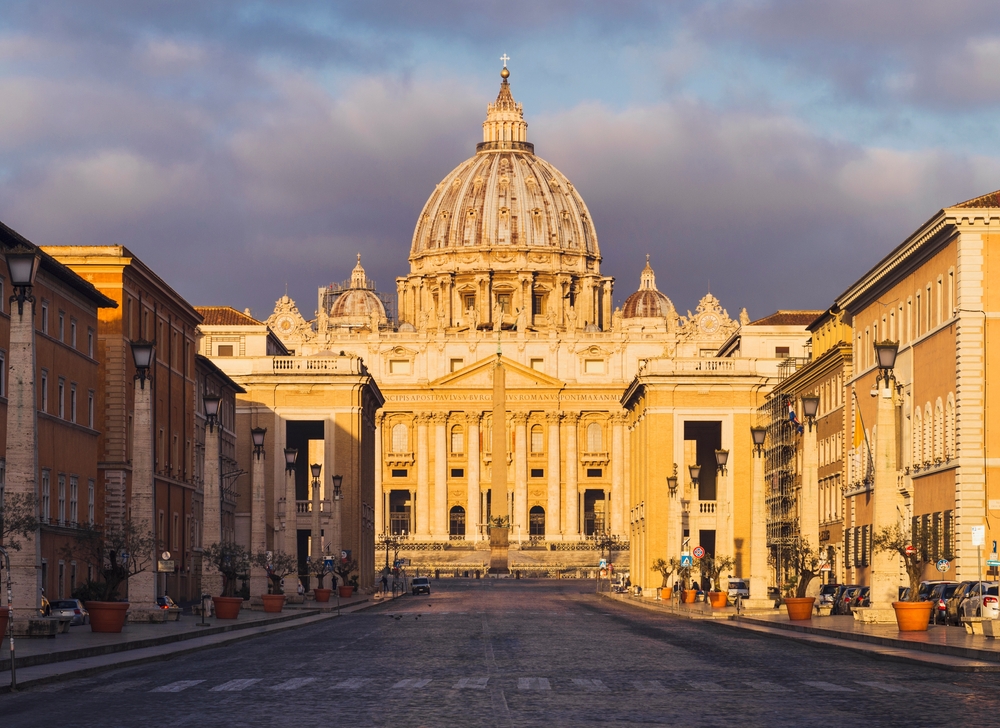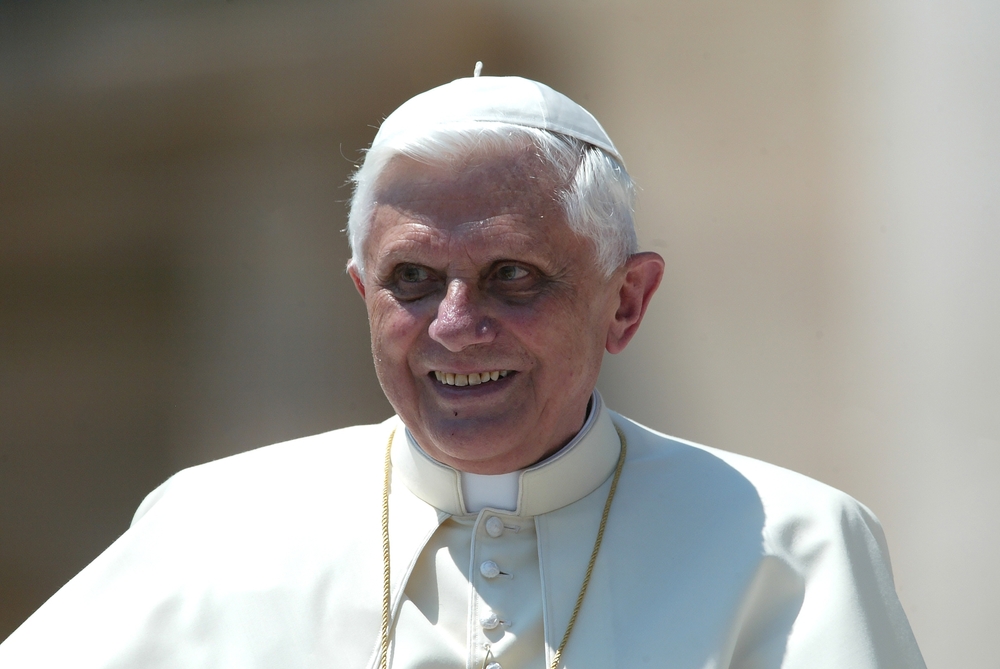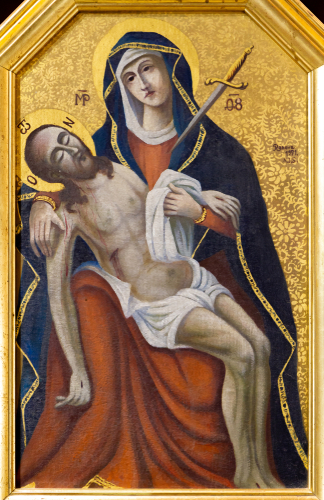The Bishop Strickland Affair: My Latest in Catholic World Report

I am on vacation until the 20th of November and for some reason my laptop has decided that it does not want to link to the CWR article that was published yesterday on the Bishop Strickland affair. Therefore, I am cutting and pasting the article as text:
Pope Francis has removed from office Bishop Joseph Strickland of the Diocese of Tyler Texas. This was not unexpected, and many thought it was inevitable following the Vatican’s apostolic visitation earlier this year and subsequent investigation into Bishop Strickland’s management of the diocese. So far, the reasons for this decision have not been forthcoming from the Vatican and it is not clear if they ever will be.
My thoughts on the dismissal are mixed. On the one hand (for reasons outlined below), I have never been a supporter or admirer of Bishop Strickland. Indeed, just last year I published on my blog “A Manifesto for a New Traditionalism” wherein my co-authors and I invited readers to add their signatures to it. Bishop Strickland called me on the phone to discuss the matter and said he was pondering signing it. After some thought I sent him an email in which I politely, but firmly, said no and told him that “with all due respect I did not wish to be associated with his brand of traditionalism.” He was polite in response, said “Thank you”, and that was that.
On the other hand, the Vatican’s removal of Bishop Strickland from office while at the same time giving a pass to radical progressive bishops from Germany, who have publicly dissented from Church teaching, opens the Vatican up to reasonable criticism that there is a double standard at play. There seem to be two sets of rules for bishops: one for conservatives that is punitive and constricting, and another for liberals which is latitudinarian and permissive. I am not saying that there is a complete equivalence here between the two situations, but there is enough of a comparison to at least raise the question.
And, which is worse? Criticizing the Pope publicly in inflammatory ways (especially for a bishop)—or publicly dissenting from long settled Church teaching on sexual morality and calling for wholesale changes in doctrine? In addition, and not unrelated, Pope Francis has a checkered (at best) record on the issue of punishing bishops accused of covering up sexual abuse.
There is a possibility that Bishop Strickland was removed for purely administrative reasons that are not penal in nature. The Vatican may have reached the decision after the apostolic visitation this past June that Bishop Strickland’s duty to manage his diocese properly had fallen short of the minimum threshold required for effective leadership.
But how would we know whether this is the case or not? And does this not just raise many more difficult questions?
This is precisely why it would behoove the Vatican to be completely transparent as to the pastoral reasons for this dismissal. As it stands now, the removal from office of a bishop who is popular among very conservative Catholics is only going to create more bitterness, division, and vitriol among an already alienated constituency of Catholics both clerical and lay. Absent full transparency it will not heal the divisions in the Church but will, like Traditionis Custodes, make them worse and further radicalize those formerly conservative Catholics who have moved toward or into extreme traditionalism in reaction to Pope Francis.
Therefore, without further transparency the Vatican is open to the charge that its much vaunted “listening” to the “people of God” is a rather one-sided affair indeed, if not a total sham, since all of the “listening” seems directed only to those voices the Vatican wants to hear.
Transparency would also help alleviate the appearance of an overly heavy-handed and autocratic use of papal authority. It is very rare for a bishop who has not committed moral or criminal violations of a serious nature, and who has not taught overt heresy and who has not given evidence of mental instability, to be deposed from his office without a public explanation. There are canons in church law that govern such things and it would be helpful if the Vatican specified which canon(s) have been invoked in this case. And this is no idle issue of marginal importance. Popes can do as they please with canon law of course, but if the Pope wishes to create a more “synodal church” then he simply cannot rule autocratically with an l’etat c’est moi mentality.
Furthermore, Pope Francis now has a track record of deposing bishops without public explanation as in the previous case of Bishop Daniel Fernández Torres of Arecibo, Puerto Rico, who was mysteriously relieved of his office without any rationale given. Bishop Torres had opposed mandatory COVID vaccination policies and had balked at sending his seminarians to a particular seminary, but are those really good reasons for deposing a bishop? And who even knows if those were the issues? How could we?
And that is the point. “Transparency and a culture of accountability,” says the recently released Synthesis Report of the 2023 assembly in Rome, “are of crucial importance for us to move
forward in building a synodal Church.” A synodal Church is a transparent Church except, apparently, when the Pope decides otherwise.
This pontificate’s silence in the Strickland case—especially if that silence continues—will only reinforce the idea in certain circles that this is a pontificate that bases itself on a cult of personality and will to power, wherein no explanations are required and asking tough questions are acts of intolerable disobedience. The Vatican needs to understand that you cannot have it both ways. You cannot speak incessantly and with the regularity of a metronome about “parrhesia!” and “synodal listening” and a Church of open transparency—and then turn around and consistently ignore all of that when it is convenient for the Roman powers that be.
However, even in the absence of a full explanation from the Vatican, one can reasonably speculate as to reasons behind this action since many of the particulars are already well known. For starters, Bishop Strickland has been an outspoken critic of Pope Francis. At the end of last month, giving a speech in Rome, he quoted a letter from someone he called a “dear friend” who described Pope Francis as “this usurper of Peter’s chair…” Bishop Strickland did not indicate whether or not he agreed with this assessment. But the mere fact that he quoted it at all, without much comment, is indicative of his sympathy for the extreme frustration felt by those on the radical Catholic Right toward the Pontiff. This is on top of the many critical comments over the past several years, many of them via social media, has strongly criticized the Pontiff, stating earlier this year: “I believe Pope Francis is the Pope but it is time for me to say that I reject his program of undermining the Deposit of Faith. Follow Jesus.”
There are many aspects of this papacy that are indeed deeply troubling, and I have noted many of them over the past few years. Many problems with this papacy, in my view, are largely of a pastoral and not a doctrinal kind. And I have attempted to make the case that these pastoral decisions have been deeply problematic. My complaint has been that the pope’s attempts to change pastoral practice in a more permissive direction will, in the end, have theological and doctrinal consequences. But that Rubicon has not yet been crossed, in my view—and may never be crossed.
Less well known amidst the hoopla surrounding Bishop Strickland’s removal from office is that there were also serious and ongoing complaints from priests and laity in his diocese about Bishop Strickland’s governance. And these facts should not be lightly dismissed as a mere smokescreen designed to hide the “real reason” (his criticisms of the Pope) for his dismissal. After all, there are other bishops in the world who have also been critical of the Pope who remain in office and who have not had an apostolic visitation. For example, Bishop Athanasius Schneider, Auxiliary in the diocese of Astana in Kazakhstan, has expressed on numerous occasions his displeasure with Pope Francis (although more diplomatically than Strickland), and his new question-and-answer format catechism, titled Credo, contained a few not-so-veiled attacks on some of the Pope’s teachings ( as well as several teachings of Vatican II). But he remains in office and, as of now, relatively unscathed by Vatican agitations.
All that said, I think Pope Francis is also partly to blame for this mess. The primary pastoral function of the Petrine ministry is to unify the Church by clarifying matters that are in dispute. But I think that Pope Francis has done precisely the opposite and has sowed division by way of a studied ambiguity and the selective use of silence. And when this confusion reaches a level that it troubles the faith of millions of Catholics in a deep way, it boils over and creates confusion, resentment, and even anger. Pope Francis told the youth of Brazil to “make a mess!” But he quickly added that after making the mess they need to stand in solidarity with everyone and to help clean up the mess in constructive ways. Well, Pope Francis himself has in many ways made a mess. But where is the solidarity with those deeply affected by it? Where is the effort to understand the backlash that he himself helped to create and to stand in solidarity with the souls that he has so troubled? And what, exactly, did he expect would happen?
Bishop Strickland may or may not have deserved to be relieved of duty. Ultimately, that is not my call, and it is not my primary concern in the current moment. My concern is that so many of these “inside baseball” ecclesial issues are a sign of the ascendancy of a narrowly political view of the Church at the expense of the Church’s primary mission of making saints of us all and calling others to salvation. Sadly, it is indicative of a very narrow politics that everyone is funneled through the choke point of “friends or enemies”, and every penultimate “issue” is dealt with as an instance of ultimacy and pressed upon us as something of dire importance. I think this is especially true of progressive Catholics, whose extreme horizontalist understanding of the Church knows only of sociology, psychology, and the politics of constant ecclesial tinkering. But traditional Catholics have also caught the bug, turning every papal misstep into a sign of the greatest perfidy.
Therefore, I view the Strickland demotion much as I view the Synod on Synodality: perhaps needed, but probably not. But, more importantly, as indicative of a Church obsessed with the politics of a bureaucratized view of the faith and obsessed with the inner workings of its own digestive tract. The universal call to holiness is eclipsed in the dumbing and numbing down of the Church via these endless debates (and in the case of the Synod, a debate about debates).
I am not saying that these issues are trivial, because they are important. But until the Church recovers her sense of vocational mission in the world as the making present of the Living Christ through the sanctification of her members and from there on into the world, then these penultimate issues will continue to proliferate and will gradually asphyxiate the life of the Church.
In a word, we need more saints and fewer synods, more transparency and less confusion. And if we must have a synod then let’s have one on saints and how to make more of them. And the bonus is that the saints are the true mess makers—but in the sense that to be concentric to Christ is to be eccentric to the world. And their eccentricity is disruptive, destabilizing of the status quo, and massively interesting. Our bored and desperate world turns to us looking for the provocation of such saints. But our politicized Church tells the world to “talk to the palm” since we are busy doing nothing.
Ultimately, the buck stops with Pope Francis who has presided over and too often provoked this ecclesial descent into acrimonious irrelevance. Bishop Strickland erred greatly in many ways. But he is a sort of episcopal golem of the Pope’s own making.
UPDATE: Here is the link on CWR.








